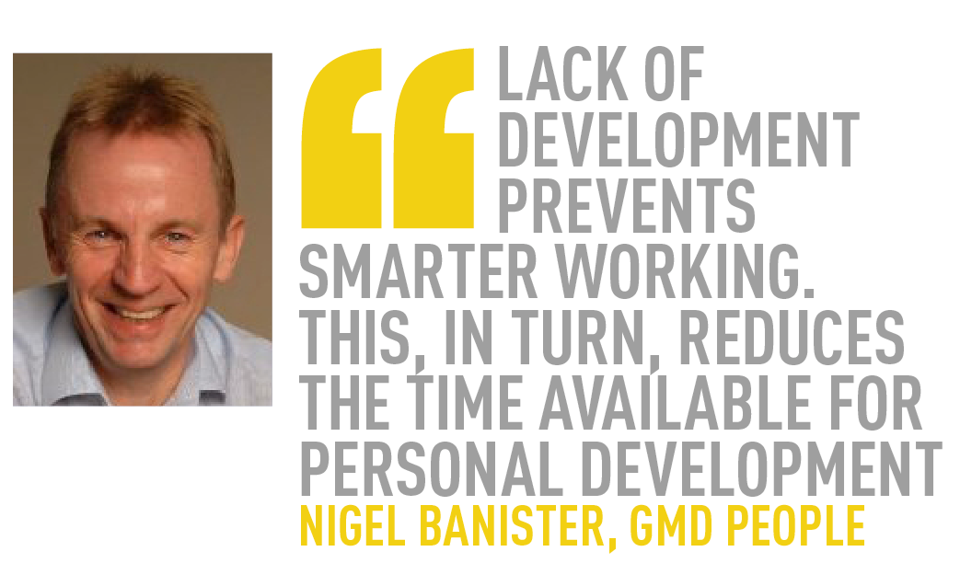The motor retail industry is failing to allow managers enough time for self-development, which ultimately would help dealerships operate more effectively.
A study of line managers and senior executives in the industry by GMD People found that managers think time is the biggest barrier to their own learning and development – more than four times as cited the costs incurred by the business.
“Long working hours are common in the retail automotive sector, so lack of time for personal development is perhaps inevitable,” said Nigel Banister, director of GMD People, a business he has run with his wife, Michelle, since leaving his role as a HR manager at Volkswagen Group in 2001.
“However many managers may be caught in a ‘Catch-22’ situation. Lack of development prevents smarter working. This, in turn, reduces the time available for personal development during the working day.”
Although time was the biggest barrier for 47% of managers, 11% blamed a lack of clarity around specific needs and 10% perceived their formal learning and development was of little benefit or value. Such feedback should drive HR teams into action – Banister said this is a sign that training managers must undertake a thorough review of the methodology, content and promoted benefits of their programmes.
When interviewing senior leaders, GMD found the level of management development activities “was very encouraging,” he said. Almost all respondents gave examples of planned and targeted training, ranging from reliance on manufacturers’ leadership courses to in-house programmes based on comprehensive training-needs analysis.
However, only a quarter use a competency framework to measure managers’ development, and the picture of targeted training is not shared by all employees further down the line. GMD gathered verbatim feedback from participants, which it includes in the full report of the study’s findings.
One manager said: “The sector lacks real thinking talent. Rather than identifying development needs, it hires and fires at will… Greater respect for the people employed is required, tied into thorough, long-term planning cycles that recognise skills gaps and provide time, funding and appropriate evaluation and follow-up of training.”
When it comes to skills participants want to develop so they can function more effectively as managers, four of the top five were the abilities to develop people, provide clear vision for the team, lead change and manage performance levels (increasing customer loyalty and retention was the other one).
Banister said it suggested managers understand the need for a clear strategic vision, while recognising that they need to develop a team capable of achieving that vision.
“On the other hand, these are all fundamental management skills, so it could be seen as worrying that so many experienced managers still feel they need to develop these skills, rather than develop them to a higher level,” he said.
Dealerships’ performance could be suffering as a result. One participant said: “I have found, when coming through the ranks, that you may get put into a managerial position without proper training, and sometimes may end up in unnecessary predicaments.”
Less than a third of managers involved had received any coaching (31%) or mentoring (19%).
Perhaps due to the fragmented structure of dealer groups, where it can be difficult to pull managers out of dealerships to head office regularly, IT is the most-used channel to deliver training for managers, with 61% having taken e-learning courses. The second-most popular is ‘informal internal knowledge sharing’ at 47%, which links to other feedback from participants about what they use to help them deal with a new or unfamiliar situation at work: 68% try ‘brain-storming’ with their team, 50% use external support from a partner, friends or professional networks, and 41% observe and listen to others in a similar situation.
Only 22% have sought specific advice from their own line manager, which Banister said suggested they may be cautious of exposing their own knowledge gaps to senior managers.
IMI Accreditation Management-Competence
Chartered Management Institute
Resource for employers and individuals seeking to enhance leadership skills and knowledge.
YouTube

















Login to comment
Comments
No comments have been made yet.